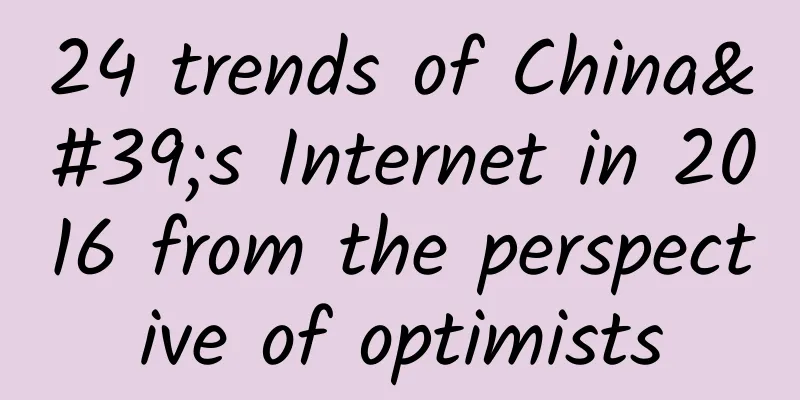Behind the blockage of TV programs on video websites: Internet TV returns to the licensing era

|
Regardless, the past few months are worth remembering for the Internet TV industry. The General Administration of Supervision has been gradually strengthened. First, it strictly investigated the time-shift/replay functions of Internet TV and reiterated the supervision principles of Document No. 181. Secondly, it completely cleaned up the video website APPs and aggregation APPs on Internet boxes. The dazzling array of video applications on users' Internet TVs disappeared in an instant. Now the fire has directly burned to the video websites. Tencent Video urgently announced on August 22 that it would shut down its TV application service on August 27. And there are reports that the State Administration of Radio, Film and Television requires video websites to participate only as CPs. Various signs indicate that the path of many video sites to enter the big-screen TV market has been blocked by the new Internet TV policy, and Internet TV licensees, which were previously considered "unnecessary to exist", have returned to the core role of the Internet TV industry. The reason is that the SARFT is "regulating" rather than "killing" Internet TV. This means that users' Internet TV cannot be without content, and only licensees have the qualifications to control and operate content. In addition, the SARFT firmly stated that the 7 Internet TV integrated control licenses will no longer be expanded, which greatly enhances the value of licensees. Who can bear the burden of the industry? The question now is, among the seven Internet TV licensees, namely Future TV, CNR Galaxy, China Radio and Television Oriental, BesTV, Mango TV, Wasu, and Southern Media, who can truly take on the role of providing content services for users' Internet TVs, thereby establishing a sustainable business model and industrial ecology for Internet TV. Otherwise, to put it bluntly, behind the "happiness" that the new Internet TV policy brings to licensees, it is very likely that the entire industry will eventually pay the price of being completely abandoned by users. First, let's look at CNTV's Future TV. With the number one national brand and CCTV's high-quality content, it is its biggest advantage, and it definitely has the potential to become a leader. But the problem now is that CCTV has been wavering about the positioning and role of CNTV, and now it has proposed a new media centered on the TV station, and time has been wasted. In fact, this has already affected the investment and overall layout of Future TV. And there are reports that Future TV is having a hard time now, which is probably not groundless. If CNTV's Internet TV wants to exert greater industrial influence, it may have to look to the future. Next, let's look at China Radio and Television Oriental and China Radio and Television Galaxy. Although they are also national brands, they do not have a strong TV station background and are relatively lacking in content. China Radio and iQiyi first formed a joint venture, and China Radio and Youku later formed a joint venture. Both companies almost want to make up for their content shortcomings through "marriage" with third parties. The method cannot be said to be bad, but it also faces certain policy risks (it is inevitable that there is suspicion of renting licenses) and strategic coordination issues between enterprises. Especially the latter, the strategies, ideas and corporate cultures of traditional state-owned enterprises and the Internet are very different, and problems will arise if they are not handled properly. As for BesTV, it has sufficient cash flow from IPTV and strong content production capabilities from SMG, plus the acquisition of Fengxing.com, so it can be said that it has the most complete "firepower configuration" among the seven licensees. If we think about the pioneering spirit that Uncle Li has injected into BesTV and the shrewdness of Shanghai people, the only question for BesTV in the matter of Internet TV is whether it is willing to do a good job, and outsiders can basically not influence it. Let's take a look at Wasu. With its long-term layout in Internet TV and the capital brought by Alibaba's investment, it is definitely a tough player. It claims to have the largest market share in Internet TV. If we consider introducing Wasu into Alibaba's digital entertainment ecosystem, the imagination space is even greater. However, Wasu's disadvantage is that its content copyright is mostly purchased and its production ability is relatively weak. Considering that more and more TV stations are beginning to implement the strategy of exclusive broadcasting without distribution, perhaps the lack of high-quality content will affect its attractiveness to users to a certain extent. At this point, we have to talk more about Mango TV. This licensee, which was still unknown a few years ago, first announced the exclusive broadcast strategy in a high-profile manner, and then proposed a "three-year 3 billion yuan support plan". The terminal even included the "tall, rich and handsome" Samsung, and the Internet box also achieved a large volume through "inside", which can be said to be booming. In fact, Mango TV has a unique advantage in content. Putting aside the millions of hours of video content, many variety shows and TV "god" dramas have a large number of fixed fans. It's just that Hunan Radio and Television used to distribute high-quality content to video websites, and Mango TV's content advantages could not be reflected. However, Hunan Radio and Television's redesigned new media strategy has fundamentally strengthened the Mango TV platform. Not only has it implemented an exclusive broadcast strategy, but it has also invested 1 billion yuan in a joint venture with Hunan Satellite TV to create a self-made weekly drama. Mango TV's advantages of relying on Hunan Radio and Television's high-quality content and capital resources have been strengthened and amplified. The fact that the number of views of "Where Are We Going, Dad 2" on the Mango TV platform is close to that of iQiyi is a clear proof. As a rising star in the field of Internet TV, Mango TV has both money and content, and is showing a trend of becoming the "leader". Now it depends on how much courage and resources Hunan Radio and Television will put into supporting Mango TV, a new media platform. Finally, I forgot to mention Southern Media. Both its own and its partner Youpengpule's Internet TV business seem to have been moving forward cautiously, with not much investment in content and terminals. Now Guangdong TV is proposing to build a new media industry group. Today, when the entire TV industry is moving towards new media, what role Southern Media will play in this is worth our anticipation. There is still a long way to go to break through the industry If the chaos of Internet TV in recent years has brought any benefit to licensees, it is that they have cultivated a certain market competitiveness in the close competition with video websites. Judging from the current development status of these licensees, Internet TV licensees led by BesTV, Mango TV and Wasu have been able to gradually meet the video needs of users, and some have even begun to provide users with a better video experience from the perspective of products and operations. However, it is still too early for the industry to break through. Payment, advertising, value-added related businesses, etc. need further breakthroughs, and a healthy business model for Internet TV has not yet been effectively established. Internet TV licensees need to continue to strengthen their content. On the one hand, they should strengthen the construction of their own content through exclusive broadcasting and copyright procurement, and on the other hand, they should cooperate with healthy and high-quality content service organizations through platform-based operations. In the final analysis, only with content can we have users and stickiness, and only then can we have operating space for business models. As for policy issues such as live broadcasting, time shifting/replaying, and crackdowns on piracy and illegal broadcasting, they need further policy lifting and support. As a winner of Toutiao's Qingyun Plan and Baijiahao's Bai+ Plan, the 2019 Baidu Digital Author of the Year, the Baijiahao's Most Popular Author in the Technology Field, the 2019 Sogou Technology and Culture Author, and the 2021 Baijiahao Quarterly Influential Creator, he has won many awards, including the 2013 Sohu Best Industry Media Person, the 2015 China New Media Entrepreneurship Competition Beijing Third Place, the 2015 Guangmang Experience Award, the 2015 China New Media Entrepreneurship Competition Finals Third Place, and the 2018 Baidu Dynamic Annual Powerful Celebrity. |
<<: Theory of Internet thinking subversion should be stopped in time
>>: MSN's farewell to China is not a pity; its decline is inevitable
Recommend
Open the door quickly, the drone is here to deliver fresh seafood!
Nowadays, driven by the strategy of building a st...
As China's chips gain momentum, will the mobile phone chip landscape face reconstruction?
The field of mobile phone chips has been in a sta...
Earning 6 figures a month by writing, my self-media entrepreneurship route!
If you only have one chance to turn things around...
2021 Second-level Construction Engineer "Construction Engineering Regulations and Related Knowledge" Basic Lecture Video Tutorial
Course objectives: Those with no basic knowledge ...
Design and implementation of folding panel component
Introduction NutUI should be familiar to everyone...
Android creator Andy Rubin: a genius envied by Steve Jobs
This year, China has been swept by an "Apple...
What are the similarities and differences between Huawei and ZTE, both of which have been banned by the US government?
On the eve of May 17 Telecom Day, the Bureau of I...
The 10 hottest growth strategies of 2019
There are two obvious trends in 2019: as the traf...
Analyzing the 4 ways to use Douyin to promote accounts!
What is a Douyin account? A Douyin account that i...
APP promotion: digging into those niche promotion channels
[[145610]] There are many articles about App prom...
The report says that Android will account for 82.6% of the market share in 2019
The competition between iOS and Android has enter...
The Aesthetic Value of Scientific Experiments
Today's scientific experimental devices are c...
"China's Sky Eye" has made another important new discovery!
The search for nanohertz gravitational waves is o...
Breaking the world record! The Insight-HXMT satellite “saw”…
Recently, my country's Insight-HXMT team disc...
New features of iOS 9 SDK that developers need to know
[[146244]] Flowers look the same every year, but ...









